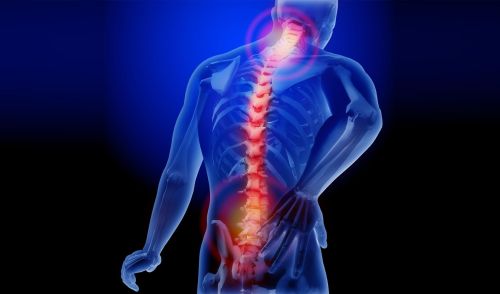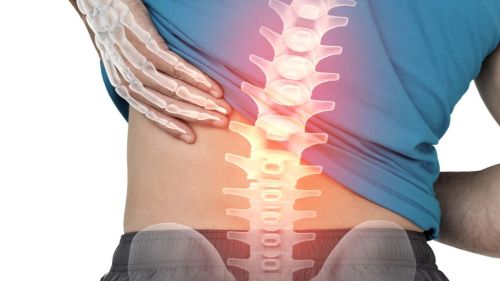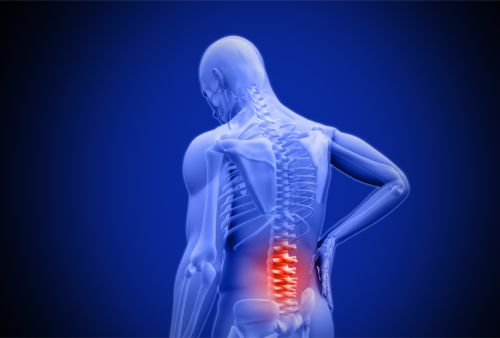A surgical procedure performed when internal organs in the body move out of their normal position in the abdominal area. Hernia surgery is carried out to repair the hernia sac and return the internal organs to their place. It is usually done under general anesthesia. Patients should rest for a few days after the operation and avoid heavy activities. It is an effective solution to improve patients' quality of life.
When is Hernia Surgery Performed?
 It usually causes pain and discomfort in the abdominal or groin area. If this situation negatively affects daily life, surgery may be necessary. If the hernia is growing over time, this can increase the risk of internal organs getting trapped. A growing hernia generally requires surgical intervention. If accompanied by symptoms such as nausea, vomiting, or difficulty in bowel movements, it is considered an emergency. Hernia surgery is required. It refers to a situation where internal organs are trapped within the hernia sac. A trapped hernia can lead to the cutting off of blood flow and requires urgent surgical intervention. Someone who has had this surgery before might consider surgery again if the hernia recurs. If it negatively affects the person's quality of life, surgical intervention might be considered. The decision for hernia surgery is made by the doctor evaluating the patient's health status, the size of the hernia, and the symptoms. In every case, the patient's condition and needs are taken into account to create the most suitable treatment plan.
It usually causes pain and discomfort in the abdominal or groin area. If this situation negatively affects daily life, surgery may be necessary. If the hernia is growing over time, this can increase the risk of internal organs getting trapped. A growing hernia generally requires surgical intervention. If accompanied by symptoms such as nausea, vomiting, or difficulty in bowel movements, it is considered an emergency. Hernia surgery is required. It refers to a situation where internal organs are trapped within the hernia sac. A trapped hernia can lead to the cutting off of blood flow and requires urgent surgical intervention. Someone who has had this surgery before might consider surgery again if the hernia recurs. If it negatively affects the person's quality of life, surgical intervention might be considered. The decision for hernia surgery is made by the doctor evaluating the patient's health status, the size of the hernia, and the symptoms. In every case, the patient's condition and needs are taken into account to create the most suitable treatment plan.
How is Hernia Surgery Performed?
 Before the surgery, the doctor takes the patient's medical history and performs a physical examination. Necessary blood tests and imaging methods (ultrasound, MRI, etc.) may be requested. During the operation, general anesthesia or local anesthesia is applied to ensure the patient's comfort. The type of anesthesia to be used depends on the patient's condition and the location of the hernia. A cut is made on the skin at the surgical site. In open hernia surgery, a larger cut is made, while in the laparoscopic (closed) method, small incisions are made. The hernia sac is found, and the tissues inside are repositioned. To prevent the recurrence of the hernia, stitches or a synthetic mesh are usually used. Mesh provides support in the hernia area and speeds up the healing process. The incision is closed with stitches or staples. The patient needs to stay in the hospital for a certain period to rest after the operation. Mild pain, swelling, and discomfort are normal in the first few days. After the surgical intervention, the doctor performs a follow-up examination to check the healing. During this process, the patient's symptoms are evaluated. Patients should avoid heavy lifting and intense activities for a few weeks after the surgery. Hernia surgery is generally a safe procedure. Most patients can return to their normal activities shortly after the surgery. However, every surgery has risks; therefore, it is important to follow the doctor's instructions.
Before the surgery, the doctor takes the patient's medical history and performs a physical examination. Necessary blood tests and imaging methods (ultrasound, MRI, etc.) may be requested. During the operation, general anesthesia or local anesthesia is applied to ensure the patient's comfort. The type of anesthesia to be used depends on the patient's condition and the location of the hernia. A cut is made on the skin at the surgical site. In open hernia surgery, a larger cut is made, while in the laparoscopic (closed) method, small incisions are made. The hernia sac is found, and the tissues inside are repositioned. To prevent the recurrence of the hernia, stitches or a synthetic mesh are usually used. Mesh provides support in the hernia area and speeds up the healing process. The incision is closed with stitches or staples. The patient needs to stay in the hospital for a certain period to rest after the operation. Mild pain, swelling, and discomfort are normal in the first few days. After the surgical intervention, the doctor performs a follow-up examination to check the healing. During this process, the patient's symptoms are evaluated. Patients should avoid heavy lifting and intense activities for a few weeks after the surgery. Hernia surgery is generally a safe procedure. Most patients can return to their normal activities shortly after the surgery. However, every surgery has risks; therefore, it is important to follow the doctor's instructions.
Post-Hernia Surgery Precautions
 Resting for the first few days after the operation helps your body heal. Avoid lifting heavy objects and strenuous activities for at least 4-6 weeks. Regularly take the painkillers prescribed by your doctor to keep the pain under control. If the pain is uncontrollable or worsens, consult your doctor. Take care to keep the surgical site clean and dry after hernia surgery. If there are signs of infection (redness, swelling, discharge) at the stitches, inform your doctor immediately. Drinking plenty of water and consuming fiber-rich foods helps your digestive system function regularly. Constipation can put pressure on the hernia area, so be mindful of your diet. You can start light walks with your doctor's approval. However, do not rush into your exercise program. Progress slowly when returning to your normal activities and pay attention to your body's reactions. Attend follow-up appointments regularly after the surgical intervention. Consult your doctor in case of severe pain, fever, or unusual symptoms. It is important to be cautious after hernia surgery. It will positively affect your recovery process and reduce your risk of complications. It is important to follow these recommendations for a healthy recovery period.
Resting for the first few days after the operation helps your body heal. Avoid lifting heavy objects and strenuous activities for at least 4-6 weeks. Regularly take the painkillers prescribed by your doctor to keep the pain under control. If the pain is uncontrollable or worsens, consult your doctor. Take care to keep the surgical site clean and dry after hernia surgery. If there are signs of infection (redness, swelling, discharge) at the stitches, inform your doctor immediately. Drinking plenty of water and consuming fiber-rich foods helps your digestive system function regularly. Constipation can put pressure on the hernia area, so be mindful of your diet. You can start light walks with your doctor's approval. However, do not rush into your exercise program. Progress slowly when returning to your normal activities and pay attention to your body's reactions. Attend follow-up appointments regularly after the surgical intervention. Consult your doctor in case of severe pain, fever, or unusual symptoms. It is important to be cautious after hernia surgery. It will positively affect your recovery process and reduce your risk of complications. It is important to follow these recommendations for a healthy recovery period.


